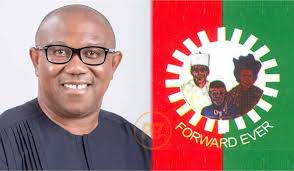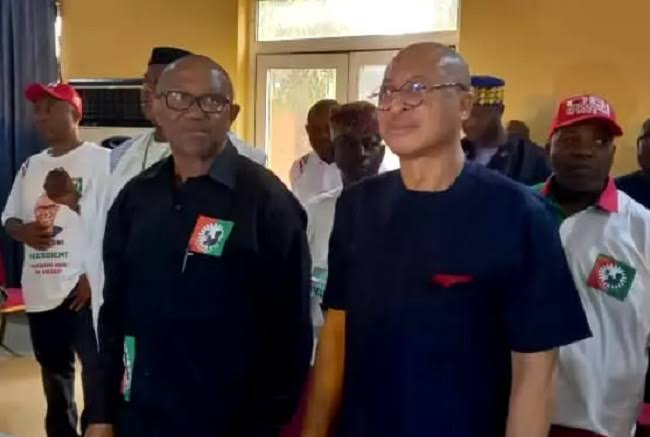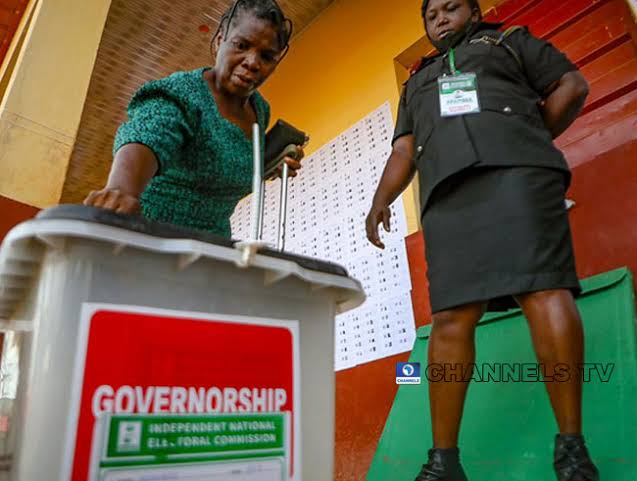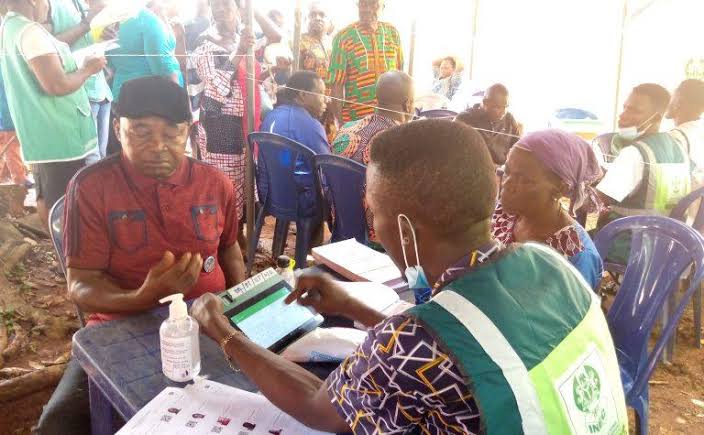2023 GENERAL ELECTION (2):
• Is Peter Obi-Labour Party An Option for the Working Masses?

By Aj. Dagga Tolar
Unable to match Atiku’s 20,000 dollars to delegates at the convention and other big Dollar spenders in the PDP primaries; the same Atiku that he was Vice presidential candidate to, in the 2019 General Elections, Peter Obi chose to cross carpet to the Labour Party (LP). With little or no competition, he was able to fulfil all of the under-the-table demands of the labour bureaucrats to become the presidential flag bearer of the LP.
This tradition of party tickets for sale to the highest bidder from the losers or rejects of the ranks of politicians from the major big capitalist parties of the PDP, APC etc by the labour bureaucrats has continued to hold the party down since 2002 when it was registered. This has also made the LP completely unattractive to the working masses.
The labour leaders up until now have preferred to keep the LP locked up in a box, completely irrelevant to the challenges, struggles and aspirations of the working masses, but at intervals open it up during the electoral period for these bourgeois refugees, who lost out in the primaries of their preferred ruling class parties.
The question to ask is how much did Peter Obi dole out to catapult himself as the presidential flag bearer of the LP, less than a week that he became a member of the party?

So what is this Labour Party, this Peter Obi rebranded Labour Party that is generating interest and has made even some “socialists” endorse the call to join the electoral train? What is he bringing to the party that is making it different from what it has been in the past, and at the same time is eliciting some joy and excitement for the possibility of a break, and an end to the dominance of the APC and PDP over the polity?
It is undeniable that there has been a recorded flood of newly eligible voters desperately seeking to be registered in Lagos and other urban centres in different parts of the country, and the possibility that the 2023 general elections could witness an unprecedented mass turnout.
This cannot be divorced from the emergence of Obi, and the birth of a growing crowd of followers identifying themselves as “Obi-diet”, with the character of a mass movement, mostly in the urban centres. So what has Obi brought on board the LP that has brought all this on?
Should this be taken to mean that a qualitative shift has occurred in terms of programmes that would fundamentally change the course and history of the country, with the potential of meeting the aspirations of the working population? It is appropriate to acknowledge the trends observed above and admit that there is a quantitative new entrant into the LP, which is indicative of the desire of “change seekers” to have little or nothing to do with the APC and PDP, which are all indications that these change seekers know what they don’t want. This, however, cannot now be taken to mean that the people have now hit on the magic wand that would transform the fortunes of the working masses.

While welcoming the call by the trade unions for workers to join the party as part of the process of reclaiming the party, there is no assurance that this call would automatically propel workers to rush over to join the party. Most of the working masses still have fresh in their consciousness all of the refusal of the labour leaders to consistently provide the needed leadership in their struggle against the ruling class and their ruinous policies of deregulation and privatisation.
If anything, what many workers see is the same pattern of the past period, some efforts to make the LP as attractive as possible to woo their intending “customers” from the rich capitalist parties to come to pick a ticket for the right bargain. If anything is significant about the name; labour party, it is that it should be a party for workers and the poor masses. A party that should allow the working class the opportunity to take on the ruling class, and not trade it to members of the ruling class to play the pretence that they are the same and one with the working class and can so represent their interests and should be voted for.
The same is true of the bureaucrats in the Ayuba Wabba’s led NLC who issued a political charter of demands to be presented to all candidates who seek the vote of workers. But would Peter Obi abide by such a charter?
Interestingly this would not be the first time Peter Obi is presenting himself to the electorate, so there is nothing significant about him that has when he contested and was governor of Anambra state under APGA for two terms, crossed over to the PDP, and like pointed out above contested as Vice President to Atiku in the 2019 General Elections.
Interestingly the latter is now one of his opponents. In terms of ideas and philosophy, he does not differ from Atiku of the PDP, or Tinubu of the APC, he is a supporter of big business and neoliberal ideas of the capitalist class, defending the continued domination of the key sectors of the economy by private capital both foreign and national.

This much has been revealed by his tenure of Anambra state as governor, the case of his plunging state fund into private enterprise, instead of investing same to develop the same interest for the state.
Unwilling to pay the new minimum wage then, is indicative of how he is not in any sense workers friendly. It is completely painful and sad that this is the very person now presented to workers as a Labour candidate.
Must we not provide knocks on the Wabba’s led NLC with its defined political charter of demands as a letdown for the whole working class and indeed a step backwards, limiting working people to just the right to vote without the right to be voted for, which is the same attitude adopted by members of the ruling class? What about the right to be voted for, to own an independent political party for the working people?
A political charter for the Labour Movement should be defined by first and foremost an independent political organisation of the working people and for the working people. Such should be free from control by the members of the ruling class, defending not just the right to vote but the right of workers to stand as candidates to be voted for, campaigning on a programme and manifesto that seeks to mobilise the entire working class and all of her allies to fully come on board the arena of struggle to build the necessary force that can take on the ruling class, dislodge it from power and commence on the road of Social Revolution, to accomplish and build a new country for all on a socialist manifesto.
To call workers to join the LP, as presently so done, is nothing more than a call to vote for Peter Obi and endorse his neoliberal, capitalist ideals. This would also not be the first time the people will be presented with a supposed “fresh face” or “fresh breath” as Goodluck Jonathan was so branded, with nothing whatsoever to show for it, and leaving the working masses worse off.
The same was done with Buhari in 2015 as he was repackaged and presented to the electorate as someone who was feared given his hatred for corruption. But to the extent that the creed of governance remained that of promoting big business’s continued dominance of the economy as opposed to a total break from it, so long will living conditions worsen for the working masses.
While we will not fundamentally oppose the call for workers to reclaim the Labour Party, this cannot be defined and limited to the context of the 2023 General Elections. Joining merely to canvass and vote for Peter Obi completely defeats the purpose of the call.

To insist also that Socialists should join the LP now, without the opportunity within the context of the 2023 General Elections to stand as candidates to be able to articulate its vision of the LP directly to the electorate is simply ending up monkeyed by the monkey one was attempting to catch.
Rather the quest to reclaim the party should encompass making it impossible for the likes of Peter Obi to be ever attracted to joining the LP, without first committing class suicide, and even at that not to immediately take the front seat and dictate policies and direction for the party.
There can be no sowing or sharing in the illusion that there is a shortcut to reclaiming Nigeria from the stranglehold of the ruling class without a confrontation with it. Yes, the working class would necessarily seek alliances, but not with any of the wings of the ruling class, but with other strata of the oppressed and poor people. And this cannot begin to attempt without a clear independent political organisation of the working class built on a socialist programme.
The rot in the country is huge, no single individual or a messiah, which Peter Obi does not even claim to be, can rescue the country, not even millions of Nigeria voting and him winning the presidency can on its own begin to turn things around without bringing an end to capitalism and nationalising the commanding sectors of the economy. This is a task that calls for the working class to take over the saddle of leadership and birth workers and poor farmers’ government.
Neither Tinubu nor Atiku nor can we then for a want of anything else now put forward Obi. This does not now mean we are cutting ourselves from history or political engagement, we must continue to fight both from inside the trade unions and outside for a party of workers that canvasses politics to be conducted differently, and for the trade unions to bring their structure and resources to build such a party. And this does not in any way exclude the call for the trade unions to be fully reclaimed as fighting organs of the working class.
Capitalism, most especially its neocolonial variant, remains incapable of meeting the needs and aspirations of the working masses, and it will not refrain from launching attacks upon attacks on the working masses. Our duty, therefore, is to prepare the working masses to resist through struggles, and on account of such struggles build a movement for political power.
This is not a period to be dispirited but to more than ever hold up the correctness of our socialist programme, pointing it out that no section or member of the ruling class can fundamentally turn things around and that the working masses can only rely on themselves lives and its strength, our time is coming. We must not dismiss the working masses even with their illusions, but be ever patient, and constantly continue to reach out to them.
